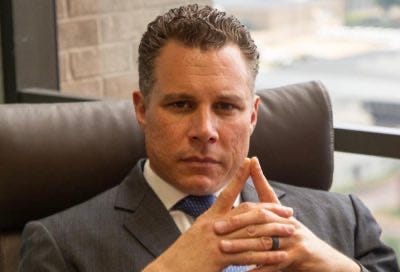U.S. Supreme Court Overturns Wire Fraud Conviction Against Former Cuomo Aide
The United States Supreme Court recently provided much-needed clarity in an important case concerning the theory of "honest services fraud," overturning the conviction of Joseph Percoco, a former aide to New York Governor Andrew Cuomo.
Joseph Percoco served as the Executive Deputy Secretary to Governor Cuomo from 2011 to 2016. The government alleged that during an eight-month hiatus from this role in 2014, Percoco accepted payments from a real estate development company, owned by Steven Aiello, to assist with its dealings with Empire State Development (ESD), a state agency. Percoco was charged with, among other things, conspiracy to commit honest-services wire fraud related to these activities.
The key issue in Percoco's case was whether a private citizen can commit or conspire to commit honest-services wire fraud based on his own duty of honest services to the public. The trial court instructed the jury that a private citizen, like Percoco, could be found to have a duty of honest services to the public if he "dominated and controlled any governmental business" and if "people working in the government actually relied on him because of a special relationship he had with the government." Based on these instructions, the jury convicted Percoco.
On appeal, the Second Circuit affirmed the conviction, referencing its 1982 decision in United States v. Margiotta, where it held that a private individual can commit honest-services fraud if he or she "dominates government." However, the Supreme Court disagreed, ruling that the jury instruction based on the Margiotta decision was in error.
The Supreme Court’s analysis hinged on its 1987 decision in McNally v. United States and the subsequent enactment of 18 U. S. C. §1346, which clarified that the wire fraud and mail fraud statutes cover “honest-services fraud.” The Court also considered its decision in Skilling v. United States, which rejected a broad interpretation of §1346 as unconstitutionally vague, noting that it only covers fraudulent schemes to deprive another of honest services through bribes or kickbacks supplied by a third party who had not been deceived.
The Supreme Court rejected the broad interpretation of the duty of honest services that was applied in Percoco's case, noting that such a duty does not extend to all private persons. The Court found that the jury instructions based on the Margiotta theory were too vague, as the public's right to a private person's honest services whenever that private person's influence exceeds some undefined threshold was not clearly defined.
The jury instructions based on the Margiotta theory in Percoco’s case were erroneous. Margiotta’s standard in the instructions—imply- ing that the public has a right to a private person’s honest services whenever that private person’s clout exceeds some ill-defined thresh- old—is too vague. Without further constraint, the jury instructions did not define “the intangible right of honest services” “ ‘with sufficient definiteness that ordinary people can understand what conduct is pro- hibited’ ” or “ ‘in a manner that does not encourage arbitrary and dis- criminatory enforcement.’ ” McDonnell v. United States, 579 U. S. 550, 576. Supreme Court Opinion
This blog post was prepared with the assistance of ChatGPT-4 AI. Nothing in this post should be considered legal advice or the creation of an attorney-client relationship. This blog is strictly for informational purposes only.



